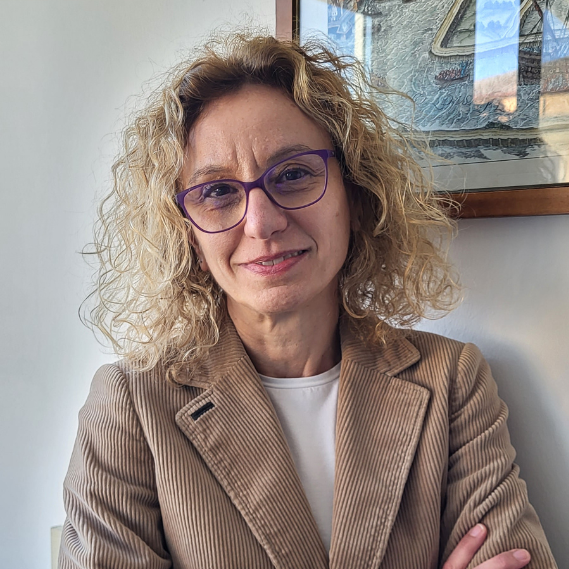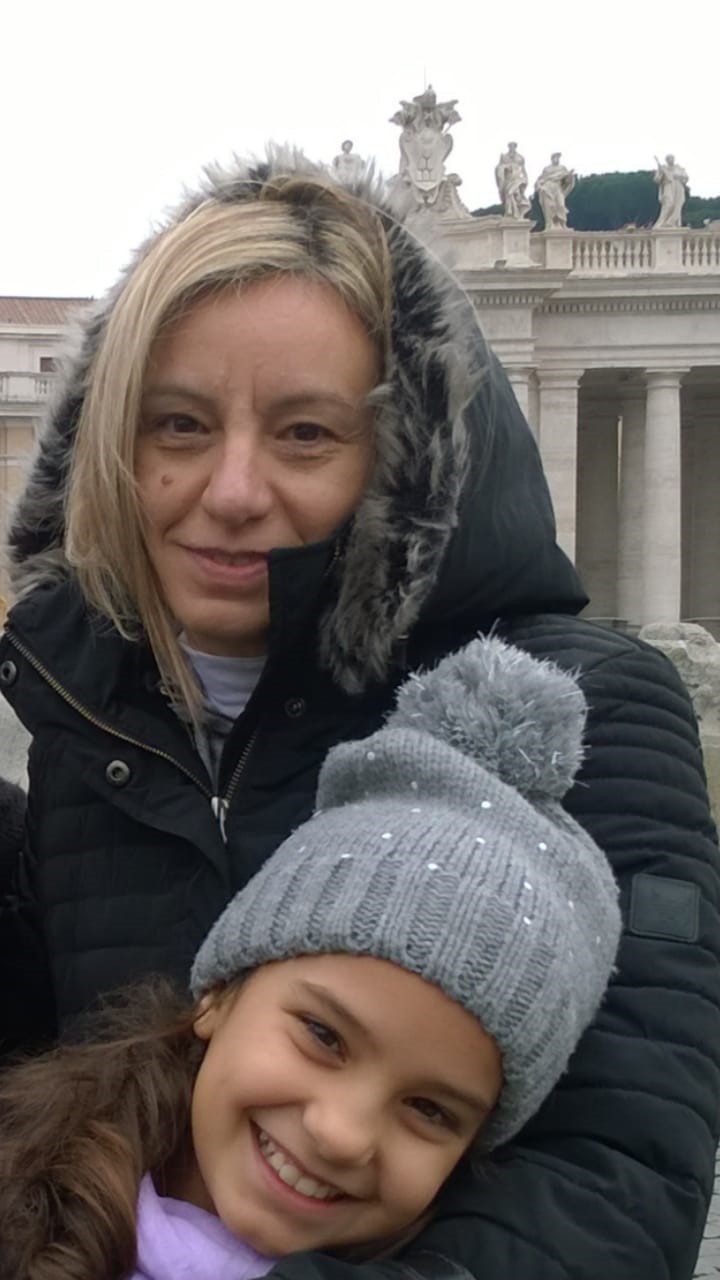Eleonora Raffuzzi, Human Resources, Organisation and People Services - Training
The average age of the women working at Leonardo Global Solutions is 44. That means being in the middle of a life that is still being constructed, in professional, family and personal terms. Time is a precious investment. How we use it, and how well we organise it, is not only a hotly debated topic but also the thing we are invited to reflect on by Eleonora, who has always taken care of others: at work, in Human Resources and in her private life, balancing commitments like a tight-rope walker.
Eleonora, who concludes the "March presents LGS women" series, reminds us of the many women who work and divide their time between the various roles they choose to play, facing the daily grind of fulfilling their dreams without ever neglecting solidarity, kindness and courage.
What was your course of study and what do you think are the skills you still carry with you today?
I took a Diploma in Business Studies and Correspondence in Foreign Languages, a course of study that later turned out not to be the best fit with my character. However, as an adolescent I had the opportunity to travel a lot, broadening my knowledge and, above all, my horizons. Travelling is a way of getting to know different places and customs and also, through this interaction, oneself. I honed my analytical skills, my precision and my propensity to solve problems rationally: it's not ideal to always want to have situations under control when flexibility would be the best strategy, but I am working on it.

What has your career path been so far?
It is not easy to sum up thirty-five years of work in a few lines: it has certainly been an uphill path, accompanied by company crises and rebirths. I still remember the moment when one of my former bosses boosted my confidence by recognising my abilities, and offered me the opportunity to work in Human Resources. In fact, I started out as a management secretary and only later joined the Human Resources, Organisation and People Services family. Today, I deal with all types of training at Leonardo Global Solutions: Specialist Technical, Regulatory and Linguistic. From needs analysis and design of training activity to implementation and evaluation of results. It is a process that requires you to have a broad and future-oriented corporate vision and put into practice the ability to analyse the needs of LGS people and then design effective training interventions. I really enjoy the contact with colleagues, looking after their needs and, above all, making a difference in resolving any problematic situations, using my aptitude for precision and organisation.
What do you think is important for achieving a balance between professional and private life?
Flexible working hours and, as already implemented in many companies, especially abroad, the short working week from Monday to Thursday. We talk a lot about the well-being of people in the company. Having time that is not only focused on work, but also stress-free time spent organising family life, including children as well as elderly parents, for example, or pursuing one's interests, can have positive impacts on working life. Greater satisfaction, with plenty of time to devote to oneself, allows us to recharge the psychological and physical energies that we put into our professions every day: clearly we are workers, but also, in cases like mine, mothers, daughters, sisters, and lovers of yoga, walking and spending time with friends.
What does International Women's Day mean to you?
8 March should be a time for reflection and taking stock of what has been done and what can be done in the future for gender equality. From this perspective, it is certainly a significant day, but not significant enough. Lately, I have been reading stories about various revolutionary and extraordinary women, especially in times when even to imagine being independent was unthinkable: these are intelligent, courageous and unconventional women who set an example for all of us. This date should also give us pause for thought on the importance of greater solidarity among women, which we should promote more. Often, in fact, we ourselves are the ones who do not give credit to other women where it is due, and we boycott each other, with fairly disastrous results.
What do you think is the biggest challenge for a woman today compared to the past?
Achieving one's goals without trying to look like a man, but respecting oneself as a woman, with all the positive and negative characteristics that distinguish us. Diversity is a precious thing. A cultural change is needed, starting in schools, including some "sentimental education" in male-female relations. Respect and not abusing power are the basics to be taught to the new generations, and not only to them.
Of all the stereotypes, is there one in particular that you have come across throughout your career?
When people are equally qualified, but it is only the women who are asked to make photocopies or prepare coffee (a truly unacceptable custom in an office, which should be abolished), as we are evidently considered more "suited" for certain tasks.
What did you dream of as a child, and what you would say to that child today?
As a child, I dreamt of imaginative and colourful professions. Growing up, I wanted to be a speech therapist, helping children and adults in the rehabilitation and education of all those conditions that cause speech and language disorders. Maybe in another life. In any case, I would like to tell that child that over time she has become good at learning to let things slide, not to judge and criticise others (unfortunately a very common sport) and to accept people for what they can give you, with all their limitations and flaws.

What advice would you give to the next generation of professional women?
I don't feel I should be giving advice. I have a daughter who is almost sixteen and I like the girls of her generation: grounded and gutsy, mentally open to whatever future awaits them. Maybe I should learn from them. Over the last century, we have made great strides in science and technology, achieving wonderful progress. Yet, it seems as if we are not progressing at the same speed in the cultural sphere, in social matters, in interpersonal relations, in respect for other populations and for the environment. In many countries where rights are denied, it was (and is) women who filled the streets, protested and made their voices heard. I hope women will never stop being aware of what is going on around them and I wish them all the courage to build a better world, a world of respect and rights.
Not flowers but?
Equal pay for men and women ... just for starters!

